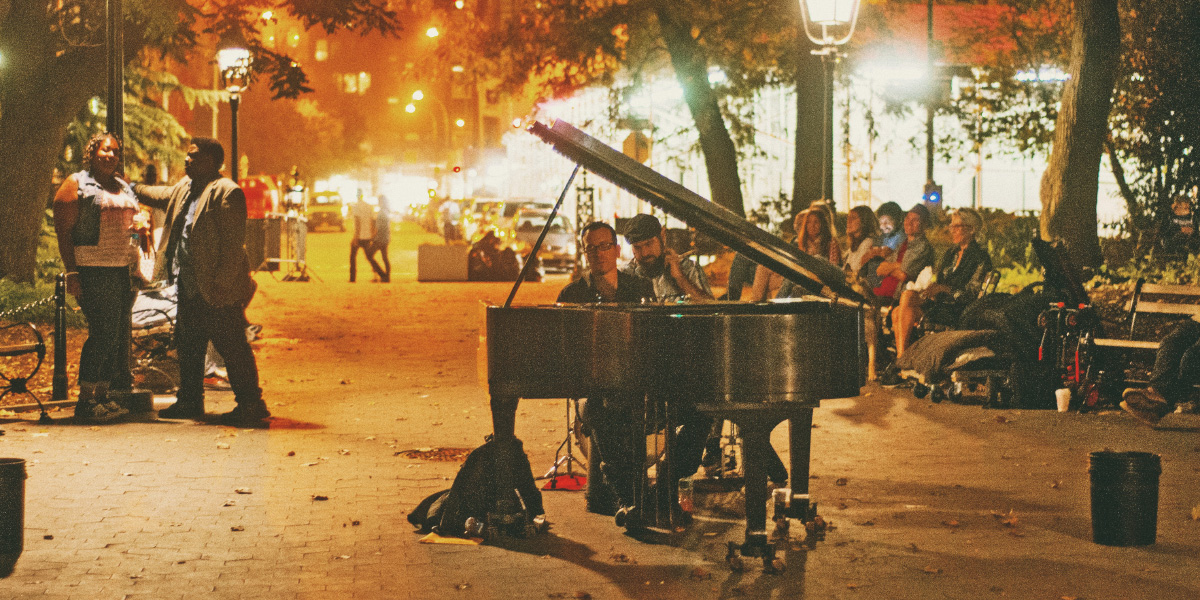
| Reba McEntire : All Dressed Up (With Nowhere to Go) |
하루 할 일을 끝내고 또는 집어치우고 가벼운 마음으로 짐 챙겨 나오면 지하철 타고 집에 돌아가기까지의 시간을 최대한 유예하고 싶어 몇 번 돌아서 최대한 먼 역으로 간다. 워싱턴 스퀘어 공원에서 분수에 모인 사람들과 쿵짝이는 음악 소리를 들으면 근심이 사라지는데, 스트레스가 녹는 데 그치는 것이 아니라 비판적으로 사고하고 싶은 의욕 자체가 없어져버린다. 불행할 의지를 잃어버린다면 그것은 일종의 행복이 아니겠습니까? 뉴욕과 같은 대도시를 체화하고 살면 종교가 필요없다고 생각하게 되는 이유이기도 하다. 종교의 효용으로 뒤르켕이 지목한 「집합 열광」(collective effervescence)을 하루에도 여러 번씩 느낄 수 있기 때문이다. 종교의 힘이 신이 아닌 인간의 믿음에서 나오듯, 뉴욕이 특별한 가장 큰 근거는 특별함을 믿어온 사람들의 반짝이는 잘난체와 재수없는 선민의식에 있답니다. (이런 문장은 ~답니다 로 끝내야 제맛이다) 이러한 믿음이 수많은 신봉자들로 하여금 없는 형편에 비싼 물가와 각종 불편의 십일조를 기꺼이 내게끔 하는 것이다.





비공개 댓글입니다.
To say something is ‘religious’ in Durkheimian sense is to say it entails a system of the sacred and the profane. Ideas about ‘sacred’ things lead to various ways of celebration thereof, and religious congregation and ceremonies are often the most heightened moments in their manifestation. Grossly put, Durkheim frees the idea of religion from its own theories of metaphysics and puts it a label of function, suggesting that other, possibly secular systems of sacred and profane(quotidian) may replace traditional religions.
Durkheim makes it clear that according to his theory, a Buddhist hermit cut off from the world is not engaged in a religious activity during the period of his isolation. Religion is a socially constructed, power-aware system of beliefs that necessarily DOES STUFF and not merely provide; it influence and shape, not derive itself from, an individual’s insecurities, and its proof of and drive for existence happens when people are together DOING SHIT.
Hope this answers some of your question. His book is such a basic, founding work in the sociology of religion that his line of logic certainly leaves a lot to be discussed, which many scholars I’m foreign to have done.
Durkheim’s functionalist definition of religion really makes sense for his take on collective effervescence, yes.
And you addressed the gist of my question to the point. This definitely helps with putting ideas/propositions in context.
I’ve only recently taken interest in the actual body of sociological studies, so I’m excited to probe the divergent branches that I am not even aware of.
*giddy laugh at the thought of all my intellectual quandaries meshing together*
비공개 댓글입니다.
비공개 댓글입니다.
비공개 댓글입니다.